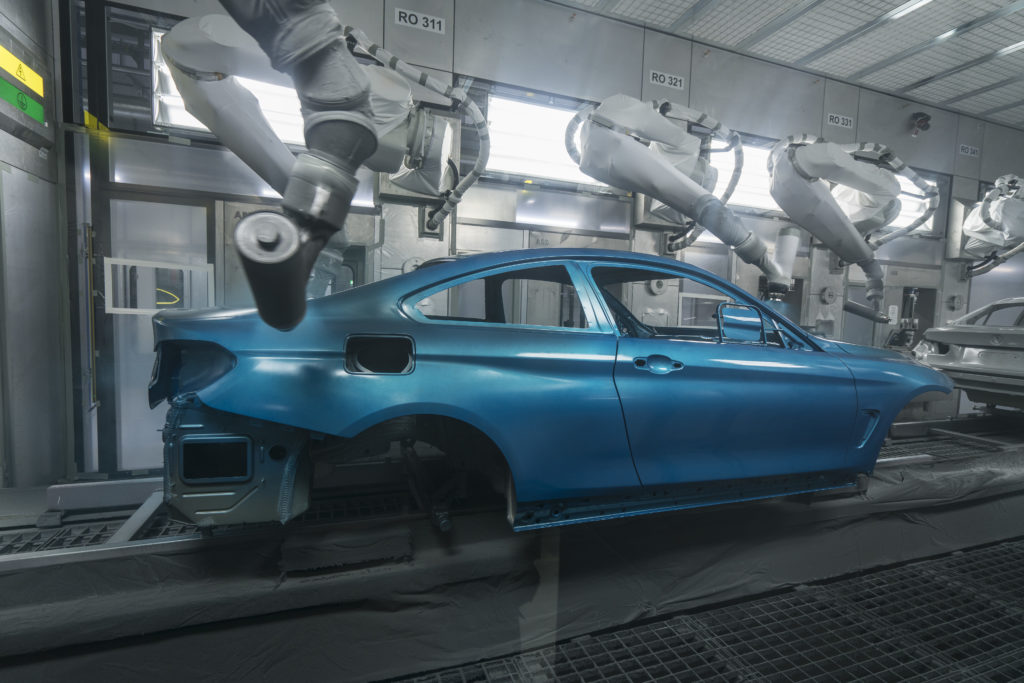BMW is joining forces with tech giant Microsoft to revolutionize the systems and controls that allow for today’s increasingly efficient and cost-conscious manufacturing practices. The effort, which will be built on the Microsoft Azure Industrial IoT cloud system, is referred to as the Open Manufacturing Platform, or OMP, and will be constructed using an open community that will share smart factory solutions across different sectors and industries, including, of course, the automotive sphere.
Intellectual property and classified data will be safeguarded, with the respective firms maintaining strict control over their secrets, but the end goal is to accelerate IoT developments as they apply to large-scale, industrial manufacturing. Although mass production has continued to evolve at a break-neck pace since its inception, in near lockstep with technology itself, today’s incredibly complex systems, which are comprised of a multitude of different machines, are still far from perfect. Modern production facilities remain hamstrung by a variety of complex and proprietary control systems, which foster data silos that can result in the bigger, more important picture, getting lost in what otherwise resembles noise.
OMP is being described as the next step in BMW and Microsoft’s longstanding technology relationship, and the announcement came at the 2019 edition of Hannover Messe, a trade fair that typically hosts over 6,500 exhibitors and over 250,000 visitors from a wide range of industries. Although it seems like BMW and Microsoft are spearheading the endeavor, a goal of four to six additional partners by the end of 2019 has been stated, with more than a dozen use cases subsequently being rolled out into specific production circumstances.
BMW is a good horse to bet on though, as we here at BimmerLife are no stranger to the automaker’s edge when it comes to manufacturing. According to recent data, BMW has more than 3,000 machines, robots and autonomous transport systems connected to the BMW Group IoT platform, which already uses Microsoft Azure. One impressive example is BMW Plant Regensburg, which is currently on its second-generation of autonomous transport vehicles and systems.
The growing interconnectedness of many things around us is undeniable at this point. From your light switches, door bell and refrigerator, to the thousands of industrial machines that are churning out components and parts at all hours of the day and night, connected devices have created a veritable maelstrom of raw data. Now, as these technologies are beginning to mature, so to are our ways of handling and subsequently interpreting the data they supply. From improving power consumption at the individual household, or even room level, to becoming aware of manufacturing defects before a part is ever fitted within a larger component or vehicle, data is arming society with a new, all-seeing perspective that previous generations could have only dreamed of. It’s going to pay to be among the first to seize upon the true potential of these developments, and, as expected, BMW appears to positioning itself for success.—Alex Tock
[Photos courtesy BMW AG.]
